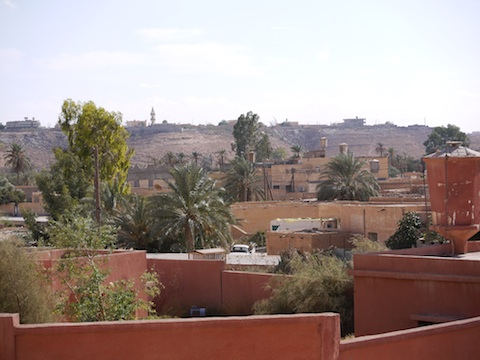By George Grant.

Tripoli, 17 October:
Attacks on Bani Walid have been reported from three separate fronts today, resulting in 11 casualties at . . .[restrict]the time of writing, one of them fatal.
The development marks new territory in the ongoing siege of the town, with all previous assaults launched from a single front on the road to Mordum and Bir Dufan.
“The attacks started sometime between six and seven o’clock this morning”, said Taha Mohammed, a doctor at Bani Walid general hospital.
“This time they started from three places: Mordum, the road south towards Mizdah, and the road east towards As Saddadah.”
In addition to being responsible for the attacks from Mordum, predominantly Misratan brigades are also said to be involved in the attack from the As Saddadah road.
The attackers from the south are understood to be predominantly from brigades originating in Mizdah and Gharyan, the first time forces from either town have been involved in attacks on Bani Walid.
As with all previous assaults, today’s attacks have not been authorised by Chief of Staff Yusuf Mangoush. Nobody from his office was available for comment today, in spite of repeated attempts by the Libya Herald to make contact.
“We have had seven more cases of the gas, and four cases from explosions”, continued Mohammed. “One of those exposed to the gas has died”.
The reference to gas follows an incident on 8 October when a total of 26 patients were admitted to Bani Walid hospital with symptoms including hallucinations, foaming at the mouth, dizziness and loss of consciousness.
The Libya Herald met with some of them during a visit to the town on the same day. Mohammed said at the time that he lacked the facilities to ascertain exactly what those admitted to the hospital had come into contact with, but concluded that the most likely diagnosis was inhalation of some form of toxic gas.
Leaders in both Tripoli and on the front lines have categorically denied having any chemical weapons in their possession, however, and it remains a possibility that any gasses inhaled may have come from facilities in the area hit by the firing, or perhaps something unintentionally corroded inside the munitions themselves.
Similar reports of gas being used were reported at the time of the conflict around Zintan and Mizdah in June, which turned out to be a false alarm.
Unlike the 8 October case, however, today’s reported gas casualties were caused by shelling from the Mizdah side, not Mordum.
The four patients wounded as a result of explosions are said to have been hit in and around the centre of Bani Walid itself.
Mohammed said that firing had also come from the Mordum area yesterday, but had not resulted in any casualties.
The fresh assaults come in spite of mediation efforts led by a union of elders commissioned by the government and the National Congress to negotiate with Bani Walid.
Following a visit to the town on Saturday, it was agreed that soldiers from eastern Libya would be permitted to enter Bani Walid, purportedly to resolve the standoff and to start the process of finding those responsible for the death of Omran Shaban.
That agreement has not been put into effect, however, having been rebuffed by commanders directly involved in the siege.
“Magarief authorised the agreement following the elders’ visit to Bani Walid on Saturday”, one source involved with the negotiations told the Libya Herald.
“Unfortunately, the people surrounding Bani Walid have said they do not agree with the proposal and seem resolved to enter Bani Walid by force”. [/restrict]






